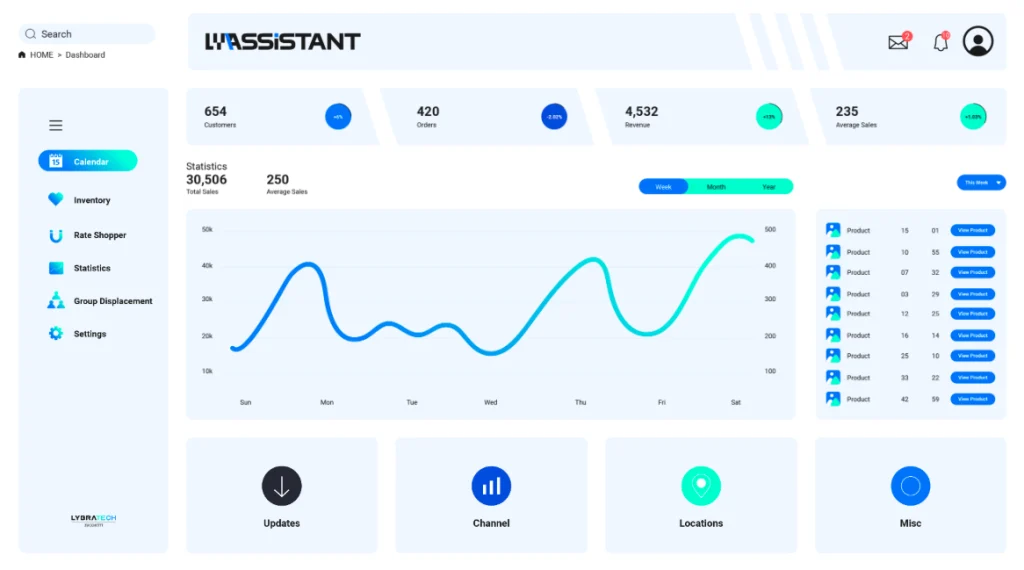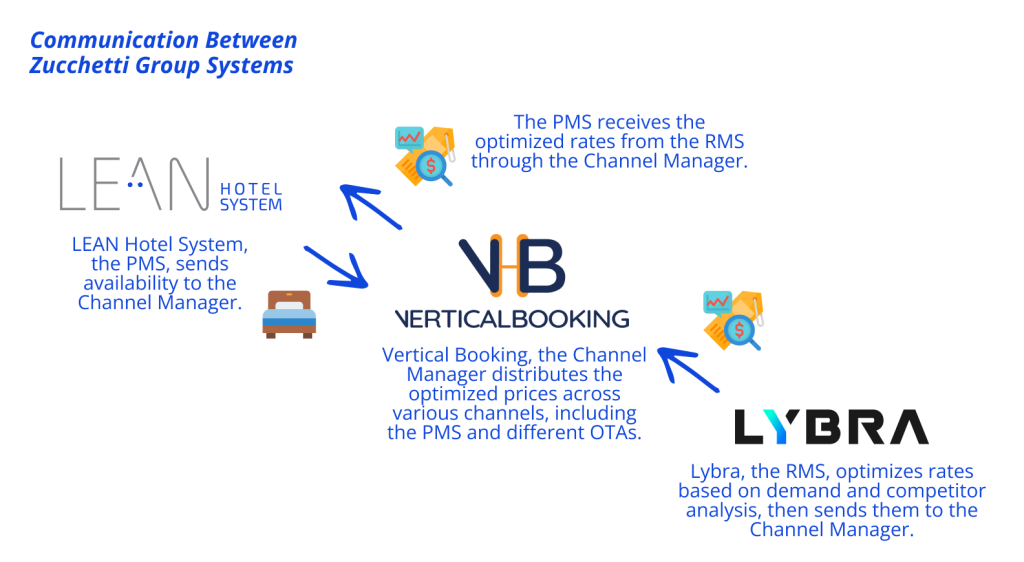Hotel revenue management systems: what they are and how they improve profitability
Revenue management systems (RMS) have replaced intuitive decision-making with one based on predictive analytics and automation. Their implementation allows optimising rates based on dynamic variables such as future demand, market behaviour, competition, customer origin and channel profitability. In hotels with inventory distributed across multiple platforms, an RMS is at the heart of ensuring that revenue per available room is maximised without compromising brand strategy or net profitability.

What is a hotel revenue management system (RMS)?
An RMS is a specialised tool that processes large volumes of real-time and historical data to generate accurate fare recommendations. It connects to the PMS, channel manager and booking engines to collect data on occupancy, bookings, cancellations, competitor prices and destination events. With this information, it calculates the optimal price for each segment, date, channel and room type, updating it automatically if configured in standalone mode. Not only does it improve profitability, it also frees the team from manual adjustment tasks and reduces exposure to human error.
What is the difference between an RMS and a hotel PMS?
The PMS (Property Management System) organises the internal operation of the hotel: it manages reservations, assigns rooms, automates billing and takes care of the control of stays. In contrast, the RMS (Revenue Management System) does not operate, it predicts. It analyses when, how much and to whom to sell a room in order to maximise revenue. A PMS is transactional, an RMS is strategic. Although they work in a complementary way, their functions and working logic are different. The key is that the RMS sends the optimal rates to the PMS or Channel Manager, and the PMS or Channel Manager applies them without manual intervention.
Key functions of a revenue management system
Demand forecasting
RMS projects future occupancy by applying statistical models and machine learning on historical pick-up, segment behaviour, seasonality, local events and booking windows. This makes it possible to anticipate increases or decreases in demand and adjust fares before the market reacts.
Control of competition
The RMS compares prices in real time with reference hotels defined in the competitive set. They alert on critical deviations and can automatically adjust prices to maintain positioning without eroding margins.
Dynamic price optimisation
It is not just about raising or lowering prices: it is about defining elasticity rules, minimum length of stay, prices per channel and device, as well as price barriers according to expected demand. The engine applies changes several times a day if necessary, without human intervention.
Segmentation and control of sales channels
The RMS allows you to differentiate rates by sales channel, customer type, country, device or lead time. It assigns dynamic quotas and prioritises the channels with the lowest acquisition cost based on projected net profitability.
Advantages of integrating an RMS with your PMS and Channel Manager
Better data-driven decision making
Integration allows pricing decisions to be based on validated algorithms and not on subjective perception. This homogenises the commercial strategy and avoids inconsistencies between shifts, locations or managers.
Automatic real-time tariff adjustments
The RMS detects changes in demand and adjusts rates without the need for intervention. Integration with the channel manager and PMS ensures that the new price is reflected in all channels within seconds, reducing the risk of disparities or operational lag.
Direct increase in RevPAR and ADR
With a correctly configured RMS, the hotel can maintain high occupancy without sacrificing rates. By prioritising higher value bookings, the average revenue per available room increases, which has a direct impact on RevPAR. Benchmarking studies show sustained increases of between 10% and 25% after six months of implementation.
When does your hotel need a revenue management system?
The decision does not depend on the number of rooms, but on the level of control and automation to be achieved. A boutique hotel with high seasonality or strong demand variability may benefit more than a large property with stable occupancy. If the team reviews rates manually, responds late to market changes or lacks predictive analytics, they need an RMS. The system eliminates reliance on subjective criteria and standardises profitability logic across the operation.
Getting started: integrating an RMS into your day-to-day operations with a hotel PMS
Effective integration requires a technology stack where all components communicate without friction. The Zucchetti ecosystem - comprising LEAN Hotel System (PMS), Vertical Booking (Channel Manager) and Lybra (RMS) - offers integration that eliminates redundancies:
- Lybra analyses data and generates optimal prices.
- Vertical Booking distributes these prices to all online channels, including OTAs, booking engines and PMS.
- LEAN PMS receives bookings already priced, with rules applied, and updates the operation in real time.
This automated flow makes it possible to implement a professional revenue management strategy even without a dedicated department. The result: centralised control, reduction of errors and continuous maximisation of disposable income.
We currently offer a comprehensive package of all three systems that work together to improve your hotel's revenue management. If you are interested, please fill in the form below.
